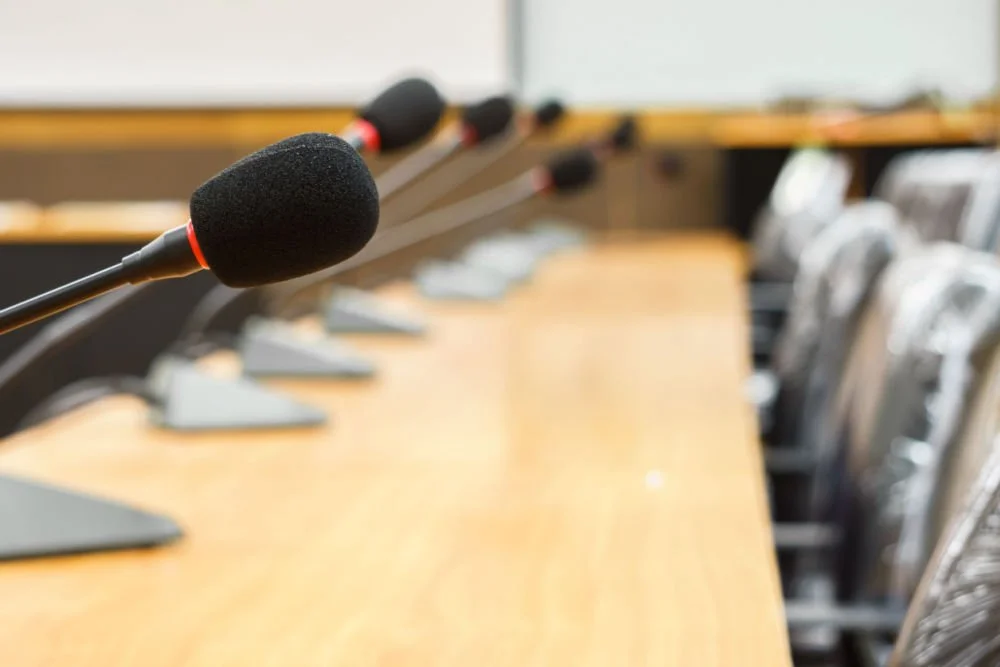What Is This Donors' Collaborative Doing to Shape K-12 Education in New York?
/A school in brooklyn. Photo: Leonard Zhukovsky/shutterstock
Collaborating with other funders takes a whole lot of patience, open-mindedness and compromise, and some foundations are clearly more skilled at it than others. Community foundations stand out in this regard. Some of the biggest funder collaborations in the country right now involve these entities, which often serve as neutral ground where funders can work with each other and other stakeholders to advance their shared goals.
It's hard to think of a community foundation with a longer, richer track record of playing well with others than the New York Community Trust (NYCT). It's long been an important hub of multi-funder collaborations in a city with a lot of foundations, and the pace of this activity has increased over time. "Donor collaboration is on the rise because it meets many needs," NYCT President Lorie A. Slutsky has said. "By joining forces, funders leverage the resources of many to tackle larger agendas, tougher issues or long-term challenges. Collaboration also provides philanthropists with an opportunity to get involved in areas in which they are not experts or take risks they might not assume on their own."
The oldest collaborative fund housed at NYCT is a fund called the Donors’ Education Collaborative. Founded in 1995, it's dedicated to improving New York City's public schools through policy reform. We've written about it before, describing it as a vehicle "where New York's progressive education funders band together."
While charter schools and issues like teacher accountability have attracted loads of attention in New York from billionaire donors, this collaborative has a very different agenda. Its initiatives over the years have often focused on promoting greater equity in school funding and empowering low-income parents of color, immigrant families and students in education debates. It also funded efforts to revise overly harsh discipline policies in the New York's public schools and backed work in 2012 and 2013 to develop a progressive education platform, elements of which were embraced by the new de Blasio administration.
Donors’ Education Collaborative sees backing policy reform as a key to system-wide change. Most notably, it funded the Alliance for Quality Education and the Campaign for Fiscal Equity for many years in a quest to revise how New York State allocated its education funding, to put focus on student need.
State officials in Albany have a lot of power over schools in New York City, which means that advocacy efforts to change education policies in the five boroughs often need to focus upstate. Charter donors have been adept at playing this influence game, with Families for Excellent Schools, a reform group with strong backing from foundations and financial industry leaders, emerging in recent years as a major lobbying force in the capital. According to Politico, the group is "one of the best-funded charter advocacy organizations in the country. It received more than $13 million from the Walton Family Foundation between 2014 and 2016 alone." Among other things, the group organized marches in 2014 and 2015 to protest de Blasio's charter school policies.
It's hard to compete with those kinds of resources. But the Donors’ Education Collaborative is doing what it can. Last month, it announced $740,000 in support to “help students, teachers and parents advocate for their needs from City Hall to the State Capitol.” The collaborative gave grants to a number of groups, including those focused on students with disabilities, immigrant students, school discipline policies, and broader funding equity issues.
NYCT said that the new funds will help advocates "press policymakers to expand access to good schools; create diverse, supportive and inclusive environments for all students; and work to ensure that schools have the funding they need." The move comes as major threats loom over federal and state education spending. Many experts worry that the new tax law, which limits deductions for state and and local property taxes, could exert downward pressure on education spending nationwide, but especially in states like New York.
Shawn V. Morehead, program director for education at NYCT and co-chair of the Donors' Education Collaborative said that "New York City's public schools have improved over the last two decades, but progress has been uneven." Lots of kids are still being left behind, including those with disabilities. Among other things, Morehead said that a goal of this new advocacy push will be to get students involved as advocates "for what they believe in."
So who, exactly, is part of this education funder group?
The Donors’ Education Collaborative currently gets its money from seven foundations. They are the Catherine and Joseph Aresty Foundation, The Morton K. and Jane Blaustein Foundation, Booth Ferris Foundation, Deutsche Bank Americas Foundation, Fordham Street Foundation, the New York Community Trust, and Schott Foundation for Public Education. The group is managed and overseen by NYCT.
Tanya Herbick, senior program officer at the Morton K. and Jane Blaustein Foundation, said:
We joined the Donors’ Education Collaborative because of its focus on improving the system for students who are often left behind, such as immigrants, those living in poverty, and those with disabilities or special needs. DEC’s grantmaking addresses problems broadly, allowing us to extend our reach to help many more children than we could working alone.
Over the past 20 years, this collaborative has made over $18 million in investments.
Related:







































